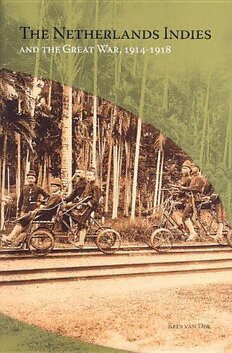
The Netherlands Indies and the Great War 1914-1918 PDF
689 Pages·2007·10.725 MB·English
Most books are stored in the elastic cloud where traffic is expensive. For this reason, we have a limit on daily download.
Preview The Netherlands Indies and the Great War 1914-1918
Description:
World War I had just broken out, but colonial authorities in the Netherlands Indies heaved a sigh of relief. The colonial export sector had not collapsed and war offered new economic prospects; representatives from the Islamic nationalist movement had not seized upon the occasion to incite unrest. The Colonial government embarked on a campaign to create an army of Javanese to repulse a possible Japanese invasion. By 1917 the optimism of the first war years had disappeared. Trade restrictions, the war at sea, and a worldwide shortage in tonnage caused export opportunities to dwindle. Communist propaganda had had radicalized the nationalist movement. By 1918, it seemed that the colony might cave in. Kees van Dijk examines how the initial wartime atmosphere of optimism changed to one of unrest and dissatisfaction, and how after World War I the situation stabilized to resemble pre-war political and economic circumstances.
See more
The list of books you might like
Most books are stored in the elastic cloud where traffic is expensive. For this reason, we have a limit on daily download.
